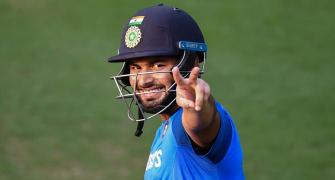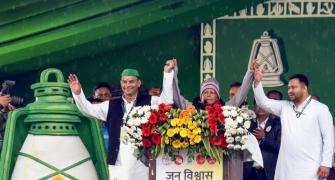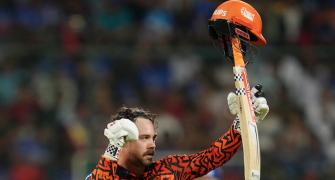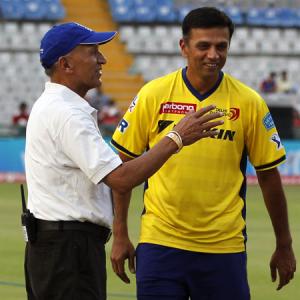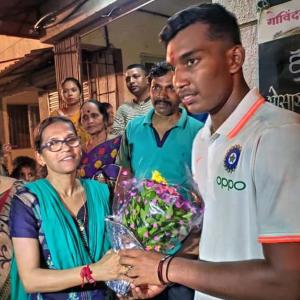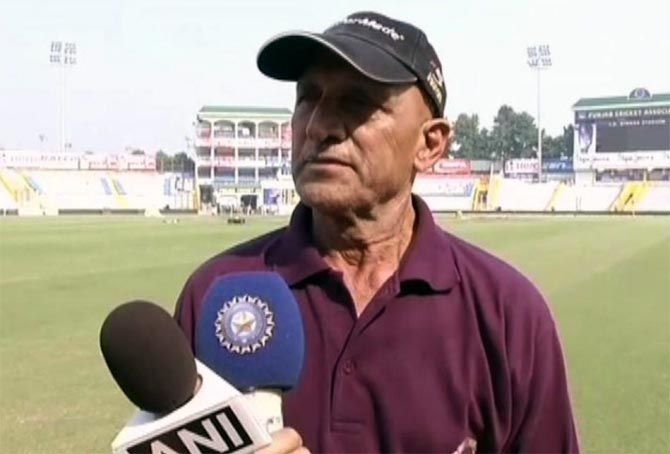 'I leave behind a settled system. The credit must go to the board also. BCCI in many ways was a trend-setter, it gave us the best possible resources to prepare good pitches.'
'I leave behind a settled system. The credit must go to the board also. BCCI in many ways was a trend-setter, it gave us the best possible resources to prepare good pitches.'

Curator Daljit Singh has retired a happy man after 22 years of service to Indian cricket. The groundstaff are no longer seen as gardeners and are getting due respect, a change that pleases him the most.
Daljit, a former first-class cricketer, may not be involved in the BCCI's pitch committee anymore but it is still difficult to keep him away from the 22-yard strip.
He continues to head the Punjab Cricket Association pitch committee and is overseeing preparations for the second T20 International between India and South Africa in Mohali on Wednesday. It is hot and humid even for the players but it doesn't bother Daljit one bit.
"I still exercise. I got to if I have to stand under the sun," said Daljit, who resigned as BCCI's chief curator earlier this month.
Former PCA and BCCI president Inderjit Singh Bindra handpicked him to produce the fastest pitch in India at Mohali back in 1993 and in another four years, Daljit became part of BCCI's first pitch committee in 1997.
"Needless to say Indian cricket has come a long way including the job of a curator. Back in the day groundsmen were merely seen as maalis (gardeners) who didn't even get paid but now we have a system in place which produces certified curators (since 2012).
"Like umpires, curators are also posted now," he said, referring to BCCI's four-level certification course which groundsmen have to pass to become curators.
As of now, around 100 BCCI certified curators are working across the country.
"It is a big number. I leave behind a settled system. The credit must go to the board also. BCCI in many ways was a trend-setter, it gave us the best possible resources to prepare good pitches. The likes of Bindra, Jagmohan Dalmiya and Sharad Pawar listened to us."
The job of a curator is a thankless one, especially in India, where intense discussions over the nature of the pitch are normal ahead of an international game.
More often that not, pressure is exerted by the home side to prepare a pitch of its liking.
"You can't say interference, they have their interests, why not?" asks Daljit.
"The home team takes interest and there is nothing wrong in that. It is like that all over the world. Curator must realise there is a match referee. If you go overboard, you could get a poor rating. There must be a balance between bat and ball."
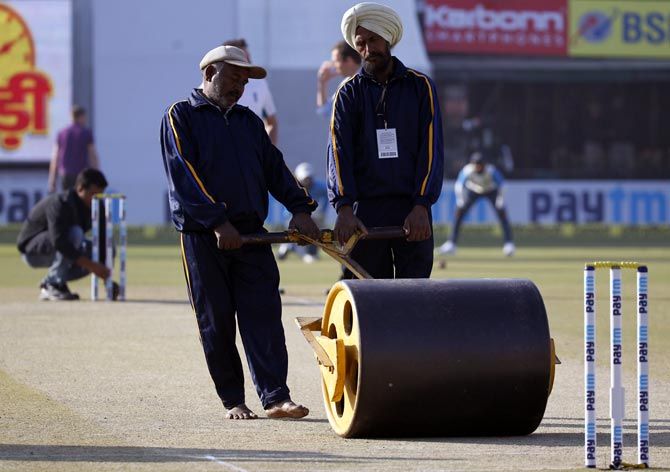
And he too was accused of going "overboard" in certain cases, most infamously in the 2009 game between India and Sri Lanka in Delhi where the game was abandoned due to a "dangerous pitch". The entire BCCI committee, including Daljit, was sacked following the incident. He was later reinstated.
"There was an inquiry conducted by the ICC and its then curator Andy Atkinson had come to Delhi. He prepared the report which stated that the BCCI curators were not at fault. The DDCA was undergoing renovation at that time and I had warned them against the lack of time to prepare a suitable pitch but they did not pay heed to it," he recalled.
More recently, in 2017, Daljit received flak for preparing a rank turner for the India-Australia Test series opener in Pune where the hosts suffered a massive 333-run defeat with the match getting over well inside three days.
The pitch was expectedly rated poor by the ICC and it was a rare loss for India at home. Daljit said there is nothing wrong in preparing turning tracks and that game was a one-off.
"It is fair enough. They also prepare to their needs when we travel. Ideally the pitch should seam on day one, helps the batting side on day two and three and after that spinners come into play.
"Having said that, like you and me, pitches also age. It also depends a lot on what time of the year you are conducting the game, the pitch will behave accordingly. This time in North, Ranji Trophy will be played in December and I expect the fast bowlers to have a good time."
Having played the game for decades before becoming a curator, Daljit always has a bagful of stories to tell. He likes the understanding between India captain Virat Kohli and coach Ravi Shastri.
"The captain runs the show and it is best that coaches work behind scenes," said Daljit, who extensively worked with Karnataka legends Anil Kumble, Rahul Dravid, Sunil Joshi, Javagal Srinath, Venkatesh Prasad, Dodda Ganesh and Sujit Somasunder when he was working for a company in Bangalore.
"The great G R Viwanath spotted me in a market and told me to work with the players. They all went on to play for India but when I met them first they were not great athletes. I remember I could beat Anil in a sprint. But through sheer hardwork he rose to the top and many other Karnataka players of that era also shone."

